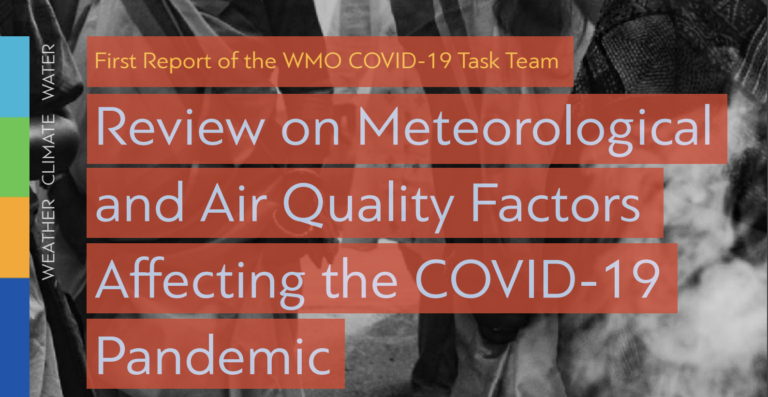A WMO Task Team has issued its first report on Meteorological and Air Quality factors affecting the Covid-19 pandemic. It cautions that weather and climate conditions, including the onset of higher temperatures in the northern hemisphere spring, should not be used as a trigger to relax measures to halt the spread of the virus.
Covid-19 transmission dynamics in 2020 and early 2021 appear to have been influenced primarily by government interventions rather than meteorological factors, according to the 16-member panel of experts in earth and medical sciences and public health.
“At this stage, evidence does not support the use of meteorological and air quality factors as a basis for governments to relax their interventions aimed at reducing transmission,” said task team co-chair, Dr Ben Zaitchik, Department of Earth and Planetary Sciences, Johns Hopkins University, Baltimore, USA.
The Task Team report provides a summary of key findings published by the first week of January 2021. It therefore does not include peer-reviewed literature regarding the influence of meteorological and air quality factors on transmission of the new strains of the Covid-19 virus, or on severity of infections caused by these new strains.
The report focuses on outdoor meteorology and air quality conditions and does not address details of indoor air circulation.
The interdisciplinary and international Task Team was established by WMO’s Research Board in order to provide a rapid summary of the state of knowledge regarding potential meteorological and air quality influences on Covid-19 dynamics, given the staggering number of papers and pre-prints currently available.
Future work of the Task Team will include the update of the scientific evidence over the next months, the identification and promotion of a structured set of priority research questions, objectives and priorities for research investment in the areas of the pandemics – weather – climate-air quality nexus.
The Task Team will also advise and inform on good practices and minimum standards for methods for integrated infectious disease modelling considering environmental determinants, and recommend on how the coronavirus, climate, weather and air quality nexus should be factored in to research and information delivery in future WMO activities.



